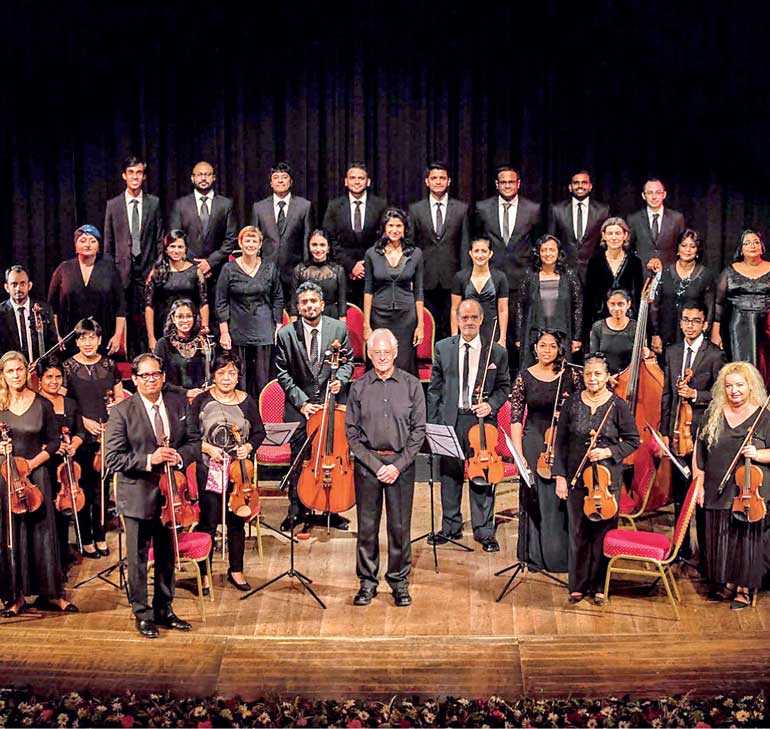Saturday Feb 28, 2026
Saturday Feb 28, 2026
Friday, 11 October 2019 00:05 - - {{hitsCtrl.values.hits}}

Six months after the tragic events of Easter Sunday 2019, the Chamber Music Society of Colombo (CMSC) and conductor Gregory Rose will seek to bring peace and solace to the survivors and those affected through the message of music. Choosing Gabriel Fauré’s exquisite requiem, the free concert will be held at All Saints’ Church, Borella, with the entire collection going towards the Easter Sunday Disaster Relief Fund, administered by the Archdiocese of Colombo.
The CMSC orchestra, led by Lakshman Joseph-de Saram and the CMSC Chorale, will be helmed by Maestro Gregory Rose, the acclaimed British conductor and composer. Soprano solo Anagi Perera, Baritone solo Harin Amirthanathan, Organ Denham Pereira.
Gabriel Fauré’s Requiem is a paragon of the choral repertoire. Composed between 1887 and 1890, it has often been seen as a response to the opulent, dramatic and even operatic requiems that were popular at the time. In contrast with the expected fire and brimstone, Fauré’s Requiem is suffused with compassion and seraphic light, reflecting his view of death: “As an untroubled liberation, an aspiration towards contentment above…”
The Requiem expresses a tranquil hope of resurrection rather than grief or the morbidity of dying. He wrote it not in memory of a specific person, but “for the pleasure of it”, treating the liturgical texts with more latitude than usual.
He omitted the foreboding text of the Dies iræ (Day of Wrath) sequence except its serene final line ‘Pie Jesu Domine, dona eis requiem sempiternam’ (Loving Lord Jesus, give them everlasting rest). His setting of this text has become so famous and beloved that it has achieved plainsong-like status.
To bring to an end an atmosphere of stillness and blessing, Fauré chose to set a marginal liturgical antiphon typically used as a final graveyard blessing ‘In paradisum deducant te Angeli’ (May the angels lead you into paradise.
This text also creates a sense of the infinite, with the word ‘requiem’ (rest) beginning and ending the work; in fact, five of the seven movements include this word, and Fauré emphasises it musically whenever it appears.
Accompanying the Requiem are two immaculate chamber choral works by Fauré and C. Frank, Cantique de Jean Racine, Op.11 and Panis Angelicus.
The concert is a gift to the people by the musicians and singers of the CMSC and conductor Rose. All are welcome, first come first served.